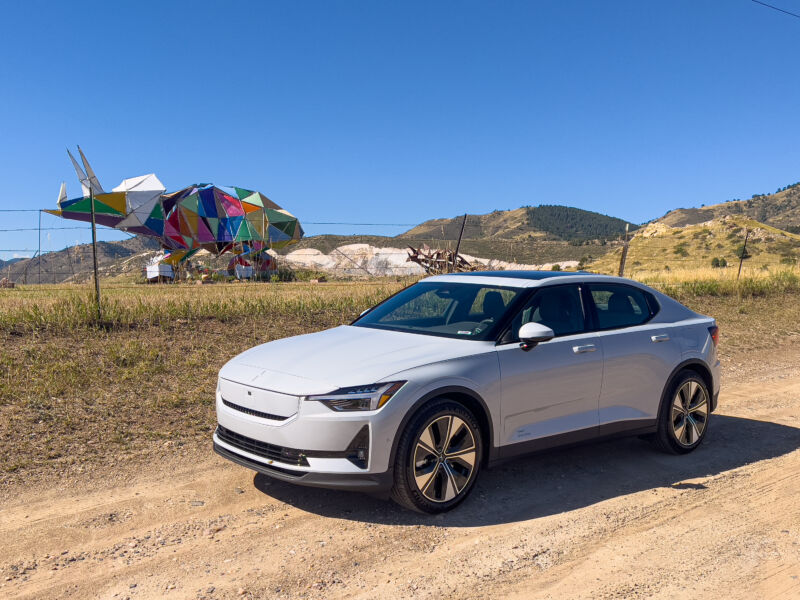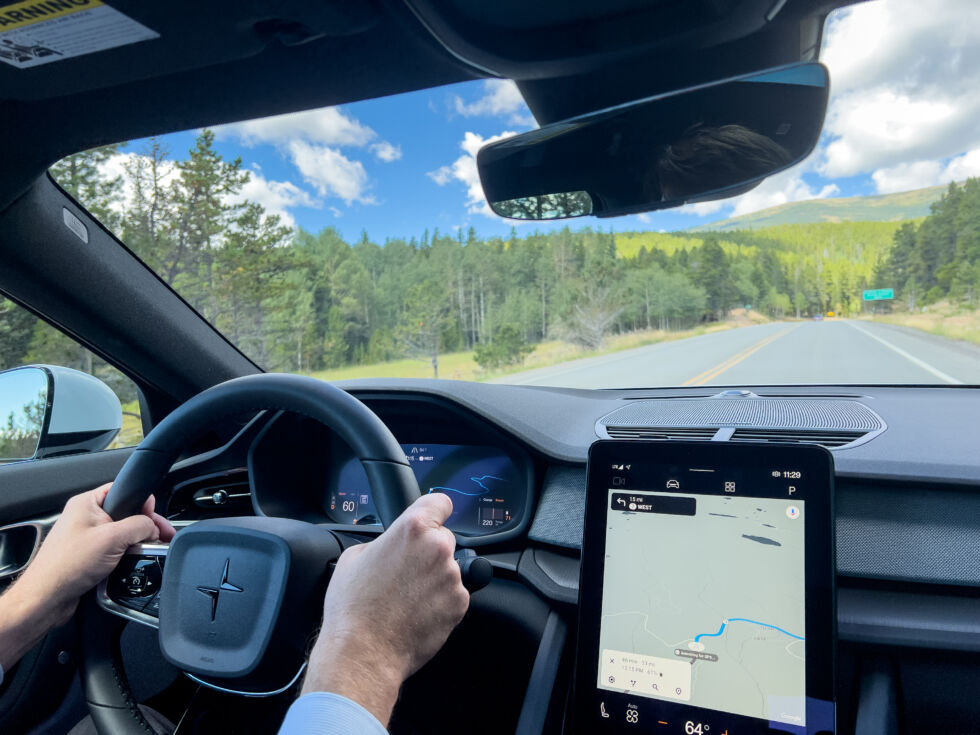Today's Technology News
Polestar 2 gets new motor and battery for MY24 refresh, and it's a winner

Enlarge / When you see a brightly colored triceratops by the side of the road you should probably check it out. (credit: Jonathan Gitlin)
A car's midlife refresh is, more often than not, a mostly cosmetic affair—new light clusters or a changed front fascia, perhaps a new interior. Truth be told, the styling tweaks to the model year 2024 Polestar 2 are subtle—you might notice new wheel designs, and the ersatz front grille has been replaced with a body-colored panel. Instead, Polestar concentrated on tweaking the bits you can't see, making the car more efficient and, in the case of the cheaper, single-motor version, a lot more fun to drive, too.
When Polestar first launched the Polestar 2 in 2020, it did so with a dual-motor all-wheel drive version, followed by a more affordable single-motor model. Although the more expensive, more powerful version was faster, as is often the case with electric vehicles, I found the supposedly lesser car the one to go for. It's this version that has had the most attention paid to it in the refresh, most notably the fact that its single motor now powers the rear wheels, not the front.

The Polestar 2's interior is little changed, but that's good because we already loved it. The Android Automotive infotainment system includes Apple CarPlay and Android Auto. (credit: Jonathan Gitlin)
Polestar has developed a new electric motor that's significantly more powerful than the one it replaces, outputting 299 hp (220 kW) and 361 lb-ft (490 Nm). That's a 29 percent boost in power and 48 percent more torque than the previous single-motor model.
A $700 Million Bonanza for the Winners of Crypto's Collapse: Lawyers

Source: The New York Times
Bankruptcy lawyers and other corporate turnaround specialists have reaped major fees from the bankruptcies of five cryptocurrency companies. The collapse of these companies has resulted in a $700 million windfall for lawyers involved in the cases.
iMessage and Bing avoid strict DMA rules, for now
Apple and Microsoft have managed to temporarily prevent iMessage and Bing from being targeted by the EU's strict new Digital Markets Act. The European Commission announced that it has opened investigations into Bing, Edge, Microsoft Advertising, and iMessage to determine whether they should be designated as "core platform services" under the DMA.
Mozilla finds that 25 major car brands examined fail to adhere to basic privacy and security standards in their new internet-connected models
According to a report by Mozilla, every major car brand's new internet-connected models have failed privacy and security tests. The report reveals that 25 major car brands examined do not adhere to basic privacy and security standards, raising concerns about data privacy.
Sources: Ars Technica, The New York Times, The Verge, Gizmodo
Comments
Post a Comment